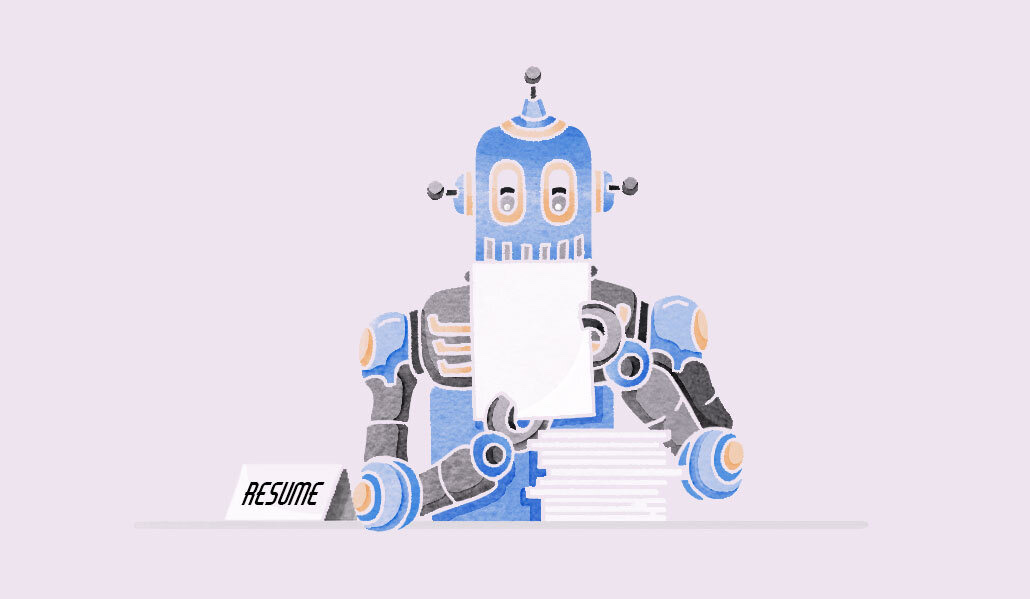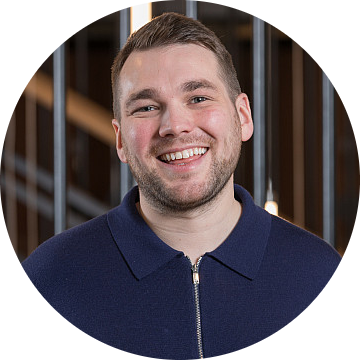Has AI made recruiters’ jobs more difficult?

Recruiters’ jobs just got harder.
Sifting through piles of resumes and cover letters to find the most suitable candidates for a job is always a lengthy task. Now, thanks to language-generating artificial intelligence tools like ChatGPT, a larger proportion of those resumes and cover letters may be better worded and structured, leveling the playing field for those applying. But it raises an extra complication for recruiters, who might struggle to filter the genuinely interested, most capable candidates for a role — from those unsuitable for it or who have taken a scattergun approach to job applications.
Add in those interviews that require writing or other kinds of skills tests, and it could be even more difficult to spot whether a candidate has tested using raw skills or if they’ve just pasted their answers from ChatGPT.
It’s one of the many questions that have arisen around the use of AI in the workplace, ever since ChatGPT burst into the mainstream. Some experts say that someone using AI like ChatGPT to fine-tune a job application shows initiative, tech savviness, and helps democratize the process.
But others argue it could delay the process for recruiters and hiring companies if they’re unable to spot any red flags at the front end of the recruitment process.
Over a third of workers have used AI in the job application process, such as writing resumes and cover letters, according to a poll by job site Monster, which also ran a test to see if people can tell the difference between text written by Shakespeare and ChatGPT. Nearly half (48%) could not differentiate between the two. It prompts questions for recruiters like: How do you know if someone just pasted something into an application or skills test? Does it even matter? Should there be policies in place? What new skills do recruiters need, whether they work for a recruitment firm, or are hiring in-house?
Receiving applications that use AI
AI-generated cover letters are convincing. Vicki Salemi, Monster career expert, compared two cover letters, one AI-generated and one not, and said the former “actually looked great.”
“We can help job seekers automate the process and save time so they can look for the right fit,” but in turn, for companies, they should hopefully stay focused on finding the right fit for the role by asking if they are the right fit for the culture.”
However, these AI-generated cover letters and resumes must be reviewed in the same way you would for grammatical errors and whether it accurately reflects the job posting.
“As the founder of an AI start-up, I am responsible for recruitment and have seen examples of those who have used the technology well and others that have been embellished,” said Rob Illidge, CEO of employee advocacy and personal branding platform Vulse.
Recruiters have found that it’s easy to spot those who might have exaggerated using AI technology in their application if they get to the interview stage, particularly through the language and tone used in the original application.
“It’s up to the recruiter to ask specific questions and prompt them to use the specific words that they had in their resume to really test and push the candidate further to explain what it is,” said Salemi. “The recruiter will be able to pick up quickly whether or not the candidate is being honest, or if they’re trying to fudge their way through the entire interview.”
ChatGPT could also accelerate the demise of cover letters if they are not valued by an employer.
U.K.-based healthcare provider Practice Plus Group recruits largely based on skills which makes the quality of a cover letter not “hugely important,” said Matt James, head of talent acquisition & resourcing at the company.
“Candidates copy and pasting a cover letter from ChatGPT doesn’t bother me nearly as much as the fact that cover letters are still required material to get a job,” said Shane Bernstein, founder and CEO of AI-powered job board Rolebot. “If it were up to me, cover letters, resumes and even job descriptions would be phased out for good.”
AI can also be used to match a cover letter exactly to the job description, using the posting’s exact language. For example, career prep company Wonsulting has two products, CoverLetterAI and ResumeAI, that creates job application material based on a target role and company.
Additional skill sets needed for recruiters today
Recruiters should keep in mind what AI-generated applications could look like, said Janis Kreilis, CEO of job ad company Hyperjob. But they also shouldn’t forget how to continue to establish leads and foster them for finding future potential employees.
“For recruiters, there needs to be better matching,” said Kreilis. “The person who applies is not just a collection of keywords on their LinkedIn profile.”
Recruiters need to be mindful of how they use AI too. Text generated from ChatGPT shouldn’t look like it was sent to 100 other people; job descriptions should be drafted with it and should include a company’s own voice.
“The way I see recruitment right now is like a marketing funnel,” said Kreilis. “In the past, you didn’t really have to think about the upper parts of that funnel. People came to you. Now, you need to put on your marketing hat and generate the leads. That’s a completely different skillset.”
However, AI cannot replace the critical next steps for any applicant.
“Fortunately, one thing AI can’t do is replace the in-person interview, which allows hirers to delve a little deeper into elements of a CV and analyze the applicant’s body language,” said Illidge.
Bernstein seconds this: “Instead of keywords on a resume proving expertise, the interview should determine whether a candidate is the right fit.”


